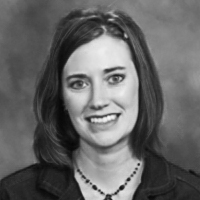Question
What oral motor exercises should I do with a pediatric client to improve chewing and increase mouth opening?
Answer
It really depends on what is going on with the child. For chewing exercises, if we are working on strength, maybe use chewing tools, like a chewy tube or an ARK Grabber®. All of them have different texture and thickness and toughness. Maybe start with the one that is fairly easy for the child and then work up from there.
With mouth opening, you will want to check and see if there actually is a range of motion issue with the jaw. Sometimes by pressing way back, right in front of the anterior faucial pillars where the two molar plates meet the upper molars, and at the lower molars, you can feel if that area back there is tight. This is a little invasive, and can set off a gag reflex, so I usually do that very very carefully. But just wiggle your finger in there to see how much room there is; this can give you a sense of whether there is tightness in the jaw.
There are some other tools out there; for example, bite blocks can work on grading jaw opening. Have the child bite on something that is very thin and hold it, and you gradually make that thickness thicker and thicker. That can actually improve mouth opening. However, they are really hard to use with very little children or children who have cognitive impairments because they do not understand the concept of sustaining a bite on the block.
If a child does not tolerate a chewing tool in her mouth and she is more comfortable with food, you can do tethering exercises. You put food in a mesh-type cloth and have the child practice chewing on that food, so they actually get direct practice chewing on food outside of non-food exercises. That might be something to try with them.
Jennifer Dahms has worked in pediatric outpatient clinics and Birth-to-Three programs in both Wisconsin and Idaho and currently has her own private practice, Valley Pediatric Feeding, LLC. Jennifer has dedicated her continuing education and professional focus on pediatric dysphagia and has presented at state and regional conferences, as well as numerous times with speechpathology.com.

